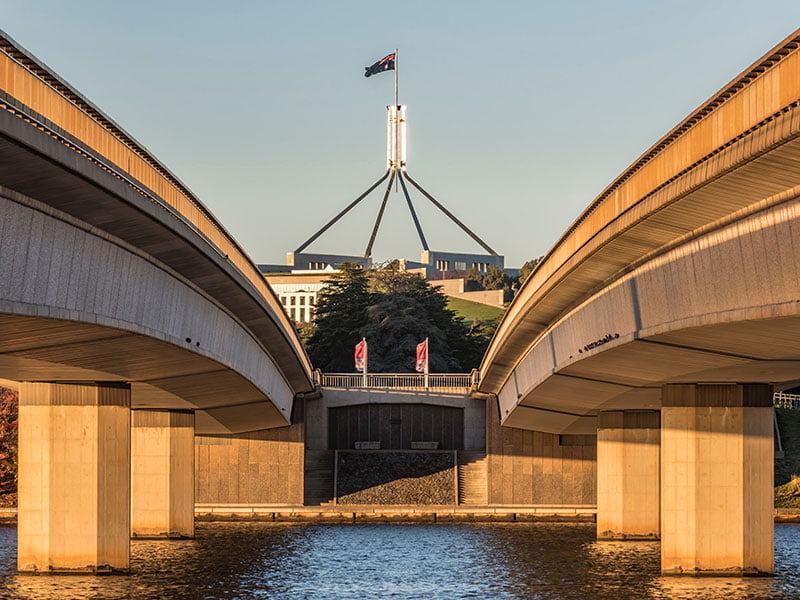More than six months after it was announced as an “urgent” priority, a comprehensive audit into government ICT capabilities has now begun.
The audit was announced as part of the federal government response to the Thodey review of the Australian Public Service, and was one of the key recommendations to be acted on immediately.
The “urgent” review could be completed within six months of being commissioned, the report found. But six months later, the Digital Transformation Agency and a number of other departments are now beginning on “initial scoping activities” for the audit, which is now unlikely to be completed this year.

The review will audit all ICT budgets, expenditure, assets and systems in an effort to establish a baseline of government capability before further reform is undertaken.
The last time a similar effort was done was in 2015-16, and there is now “no detailed inventory of the systems that exist across the APS, nor of associated risks, costs and upgrade needs”.
The audit will determine the current and forecast government ICT expenditure and assets, which systems will soon be returned and any associated risks and future requirements.
“The audit is urgent and can realistically be completed within six months of being commissioned to enable prompt development of an ICT blueprint to guide investment in digital transformation,” the Thodey review concluded.
It appears the DTA is leading the audit, while also working to develop a whole-of-government architecture, with the two efforts working in tandem. The DTA is currently progressing initial scoping efforts for the audit, working with Prime Minister & Cabinet and other agencies.
Public sector IT is currently fragmented and messy, and the audit would likely find that it will take a lot of work to transform it, Australian Strategic Policy Institute’s International Cyber Policy Centre senior analyst Tom Uren said.
“The problem with the public service right now is it’s not a single IT organisation, it’s many. To a significant degree each public service department runs its own IT. If IT is fundamental to how you do things nowadays, which it is, then that doesn’t make any sense,” Mr Uren told InnovationAus.
“The government needs to understand IT well. It seems like a lot of departments outsource too much, and then they lose expertise to make good decisions.”
The audit could be seen as unnecessary by some though, he said.
“The audit is a stepping-stone to comprehensively get a picture of what IT in the public service looks like. It’s a lot of work and it doesn’t actually help shape the future, it tells you where you are now,” Mr Uren said.
“It’ll tell us there’s a whole mess of systems, many hard to turn off because they do critical things. Depending on your point of view, an audit is either necessary or irrelevant.”
The sooner work begins to improve this situation the better, Mr Uren said.
“The urgency part comes from the fact it’s so important that the sooner you get it done, the better. You want something that underpins government services that makes it easier for every department to deliver what they need to deliver, and those incremental improvements roll up over time,” he said.
“Even a small change now and a small change next year and the year after, in five years you’re hugely ahead. It’s the right time for government to invest heavily in that – the societal trends will be a tailwind rather than a headwind.”
The DTA also recently posted a listing on its Digital Marketplace for “whole-of-government digital and ICT policy and governance advice”, with applications closing last week.
The role involves delivering strategies and options for whole-of-government ICT and digital governance and investment policy reform to the DTA. The project involves reviewing and assessing the current government ICT investment policy landscape and governance arrangements, and the creation of a roadmap for future work.
“The project will identify policy opportunities to optimise funding arrangements for digital and ICT investments – to better support development and sustainment of shared capabilities, and more flexible approaches to resourcing for agile delivery,” the listing said.
“In addition, it will consider models and processes for good whole-of-government digital and ICT decision-making, to ensure robust governance of performance, risk, strategic alignment, architecture, investment planning and stakeholder management.”
Work for this project will begin on 22 June and will run for six weeks. The listing received applications from 13 sellers.
The ICT audit will also be informed by the DTA’s whole-of-government architecture efforts, which is aiming to develop an understanding of existing opportunities, to reuse common capabilities and platforms across agencies.
It overlaps in several ways with the planned audit, with the development of a catalogue of reusable platforms and services across government, and a prototype qualitative investment tool to appraise the alignment of proposed initiatives with the Digital Transformation Priorities.
The initiative has a vision to improve from “siloed capabilities” to “connected platforms and services” and was announced by government services minister Stuart Robert in November last year.
A Whole-of-Government Architecture Taskforce has been established with secondees from Services Australia, the ATO, Home Affairs and Defence, along with a full-time team from the DTA.
Do you know more? Contact James Riley via Email.

